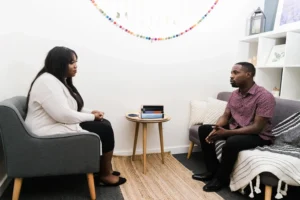Understanding the Role of a Sales Closer
A sales closer is a specialized professional whose primary responsibility is to turn leads into paying customers. Unlike general sales representatives who may focus on generating prospects, a closer excels at navigating complex conversations and finalizing deals. Their expertise lies in understanding client needs, handling objections, and confidently guiding potential buyers toward a decision. Businesses that rely solely on standard sales staff often miss opportunities that a closer would secure. A strong closer doesn’t just sell products; they create trust, provide solutions, and ensure a seamless buying experience. Their ability to read the client’s mindset and adjust their approach can dramatically improve conversion rates. For companies looking to maximize revenue, knowing when and how to hire a sales closer can be a transformative step.
Signs Your Business Needs to Hire a Sales Closer
Identifying the right time to hire a sales closer begins with analyzing your current sales performance. One clear sign is consistently low conversion rates despite generating quality leads. If your marketing campaigns bring in interest but deals stall, a closer can bridge the gap between inquiry and sale. Long sales cycles or repeated lost opportunities also indicate the need for expert closing skills. Businesses that have invested in high-performing marketing but see stagnant revenue often benefit from bringing in a dedicated closer. Another indication is when your existing team struggles with negotiation or handling objections effectively. Hiring a closer ensures that your investment in lead generation translates into measurable revenue growth. Recognizing these patterns early prevents revenue leaks and strengthens overall sales efficiency.
Qualities to Look for When Hiring a Sales Closer
Finding the right closer requires evaluating a combination of skills, experience, and personal traits. Exceptional communication and persuasion abilities are essential, as closers must clearly articulate value and motivate clients to act. They should possess a thorough understanding of your products or services to tailor their pitch effectively. Adaptability is crucial since every prospect responds differently, and a rigid approach often fails. Resilience is another key trait; top closers can handle repeated objections without losing confidence. Proven ability to close high-value deals indicates their competence, though this should be assessed through practical evaluation rather than just resumes. Finally, alignment with your company culture ensures smooth integration with existing teams and consistent representation of your brand.
How to Source Top Sales Closers
Finding the right sales closer starts with knowing where to look. Professional recruiting platforms and specialized sales hiring agencies are excellent resources for connecting with experienced talent. LinkedIn and other professional networks can also yield candidates who demonstrate strong credentials and recommendations. Attending sales and industry events may uncover candidates who are actively seeking opportunities and already have relevant experience. When reviewing resumes, focus on demonstrated ability to close deals, sales targets achieved, and versatility across industries. Referrals from trusted business contacts can also be valuable, as high-performing closers often move within professional networks. A strategic approach to sourcing ensures you access the most capable candidates for your business.
Interviewing and Assessing a Sales Closer
Evaluating a closer goes beyond standard interview questions; it requires practical assessment of skills. Behavioral questions reveal how candidates handle challenges, objections, and high-pressure situations. Role-playing scenarios are highly effective for testing real-world closing abilities and adaptability. Assessing alignment with your sales process ensures that the closer will integrate smoothly into existing workflows. It’s also important to evaluate their knowledge of your industry and ability to quickly understand your product or service. Observing communication style and confidence levels during interactions can indicate how they’ll perform with clients. Taking a structured and thorough approach to assessment helps ensure that your investment in hiring yields measurable results.
Structuring Offers and Incentives for Sales Closers
Attracting top sales closers often requires competitive compensation structures. A combination of base salary and commission motivates performance while providing stability. Performance bonuses tied to specific targets encourage sustained results and reward exceptional effort. Benefits such as health insurance, professional development opportunities, and flexible working arrangements make your offer more attractive. Clearly defined KPIs and measurable performance metrics ensure that expectations are transparent and achievable. Tailoring incentives to align with company goals ensures that closers are motivated to drive meaningful revenue growth. A well-designed compensation plan is a key factor in retaining high-performing closers over the long term.
Onboarding and Integrating a Sales Closer
Effective onboarding sets the stage for a closer’s success. Providing training on products, services, and sales scripts ensures they understand how to communicate value effectively. Setting clear expectations and KPIs aligns performance with business objectives. Integrating the closer into your marketing, sales, and support teams ensures a cohesive approach to client management. Regular check-ins and feedback sessions allow for continuous improvement and skill refinement. Sharing insights from existing sales data helps the closer identify opportunities for quick wins. A structured onboarding process accelerates their impact on revenue while fostering engagement and confidence.
Maximizing ROI After You Hire a Sales Closer
Once a closer joins your team, monitoring performance is critical to maximizing return on investment. Key metrics such as conversion rates, deal size, and sales cycle length provide insight into effectiveness. Identifying bottlenecks in the sales process allows for targeted adjustments and coaching. Encouraging ongoing learning, attending sales workshops, and providing regular feedback keeps skills sharp and competitive. Collaborating closely with marketing ensures that leads are high quality and properly nurtured. Recognizing and rewarding outstanding performance motivates continued excellence. By tracking results and continuously refining strategies, your closer becomes a significant driver of revenue growth.
Mistakes to Avoid When Hiring a Sales Closer
Avoiding common pitfalls ensures a successful hiring process. Relying solely on resumes without practical evaluation can lead to hiring underqualified candidates. Offering unrealistic compensation or failing to provide performance incentives may discourage top talent. Ignoring cultural fit can create friction within the team, undermining effectiveness. Overlooking the importance of onboarding and integration reduces the potential impact of the closer. Neglecting to monitor performance metrics limits insight into their contribution. Addressing these mistakes proactively increases the likelihood of hiring a closer who consistently drives revenue. Strategic planning and thorough assessment make all the difference in achieving tangible results.
Frequently Asked Questions (FAQ)
What is the average cost to hire a sales closer?
Costs vary based on experience, industry, and compensation structure. Typically, a combination of base salary and commission is offered, with top closers commanding higher rates due to proven ability to drive revenue.
Can a sales closer work remotely?
Yes. Many closers effectively manage leads and close deals remotely, especially when using CRM systems, video conferencing, and digital communication tools.
How long does it take for a sales closer to impact revenue?
Depending on onboarding, product knowledge, and market familiarity, a closer may start contributing to revenue within a few weeks to a few months.
What industries benefit most from hiring a sales closer?
Industries with high-value products or services, long sales cycles, or complex offerings—such as B2B software, real estate, financial services, and consulting—see the most benefit.
How can a sales closer complement an existing sales team?
Closers work with lead generators and marketing teams to ensure that quality prospects are converted into paying customers. They enhance team performance by focusing on high-value deals and improving overall conversion rates.




